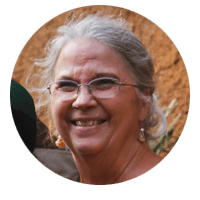This new year, we’re making space to reimagine the future and build a better world together. In the final post in our Made for Change series, Joanna Kretzer Chun and Debbie Dortzbach recount the way World Relief staff reimagined their approach to HIV prevention.
This reimagining led to the creation of a new program known as Families for Life. Families for Life is a couple-strengthening curriculum that continues to be adapted and reimagined in countries around the world.
“Vulnerability is the birthplace of innovation, creativity and change.”
― Brene Brown
A Quandary
In 2011, World Relief staff were faced with a quandary. We were in the middle of partnering with a church in India to start a typical HIV awareness and prevention workshop. Although there had been a decrease in HIV cases across India, the rates in 2011 were still quite high. In spite of governmental efforts as well as those of World Relief and other organizations like it, we weren’t seeing the results we had hoped to see.
I (Debbie) remember being kept up at night feeling disturbed that we weren’t making progress. I was at a loss for how to make the workshop more engaging and effective. But all that changed one day when I was riding on the train.
I remembered a report that told the story about how truck drivers in India were motivated to change their behaviors, not because they were afraid of contracting HIV but because they wanted to return to their families.
That little word “family” stuck out to me, and I wondered, “If this is what is motivating truck drivers to change their behaviors, why aren’t we using that as a motivator in our churches to prevent HIV and strengthen families?”
Surely the strengthening of families was something the church was called to do.
I shared these thoughts with some other team members, and that day on the train we began dreaming about what this new program could be. Change can feel vulnerable and unknown. But we knew that in order to foster greater programming effectiveness, we’d need to embrace a change, and thus the Families for Life (FFL) model was born within World Relief.
A New Way Forward
Implementation in India quickly showed that this new idea for engaging couples to spark behavior change was a huge success and filled a gap that no one else had been addressing. We soon realized that FFL could not only be effective in preventing HIV but also in helping couples address other critical issues like marital conflict and even domestic violence.
Groups began multiplying organically within churches and the wider community in southern India to meet the demand, and over time FFL blossomed, expanding out to an additional six countries, reaching thousands of couples across the globe.
At its core FFL seeks to strengthen the couple relationship as a foundation for a healthy family and calls for participants to be open to change and reimagine their futures together.
Using a combination of story, scripture, interactive discussion and personal reflection, these FFL groups go through a journey of growth together. Couples learn important skills like valuing one another, communication and problem-solving as a foundation to adapt to life circumstances and different seasons of life.
As couples work through our scripture-based curriculum, harmful beliefs about marriage and family begin to shift. Gender-based violence, alcoholism, poverty, abuse and unfaithfulness decline. Husbands begin to include their wives in everyday decisions; wives are empowered to contribute to their families’ economic growth; parents come to realize the value of educating both girls and boys; families begin intentionally planning for their futures.
Reimagining Again and Again
Families for Life is a unique model in that it can be reimagined again and again to meet the needs of a particular community, growing with that community as couples reimagine the future for their families.
Recently, in Burundi, we reimagined FFL to meet an unmet need for Family Planning. The curriculum was adapted to include information on family planning in order to prompt conversations around healthy timing and spacing of births.
This adaptation, while small, sparked new collaboration between couples, church leaders and community health workers, seeking to increase use of family planning services to reach 120,884 beneficiaries including 9,600 couples and their children. This adaptation has been successful in cultivating a trusted partnership between couples and community health workers and church leaders leading to a stronger demand for family planning services in the community.
In Haiti, we learned that one church network we worked with began hosting couples events that included games nights and all-night worship events. Once a month these churches host a family Sunday where pastors create sermons from the FFL manual. This is a community where we are no longer working, but the fruits of FFL continue to grow.
In Haiti, we learned that one church network we worked with began hosting couples events that included games nights and all-night worship events. Once a month these churches host a family Sunday where pastors create sermons from the FFL manual. This is a community where we are no longer working, but the fruits of FFL continue to grow.
Being open to change takes courage. This is true on a personal level for the couples we come alongside, but it’s also true for organizations seeking to implement effective programs. Knowing that change can lead to growth and even larger impact, World Relief continues to innovate and reimagine the future for couples and communities across the globe.
Give today, and join us as we reimagine the future alongside couples and communities across the globe.

Debbie Dortzbach was privileged to raise her family in Kenya and spent most of her professional career in community health non-formal education training. During her many years working with World Relief, she helped to create and build the Families for Life model. She recently left full time work with World Relief and now enjoys reflecting, writing, serving her grandchildren, consulting, and advising.

As the Director of the Program Resource Team, Joanna Kretzer Chun leads a team of global technical advisors that support World Relief international programs spanning Health and Nutrition, Savings, Agriculture, Child Development and Protection, and Couples’ Strengthening. With over fifteen years of international development experience, Joanna’s programming background spans the areas of gender mainstreaming, women’s empowerment, child protection, child development, faith leader engagement, and social norm change. Joanna holds Master degrees in Intercultural Studies and Family Studies from Fuller Seminary and a BA in Foreign Affairs from the University of Virginia. She resides with her family in Washington, DC.

